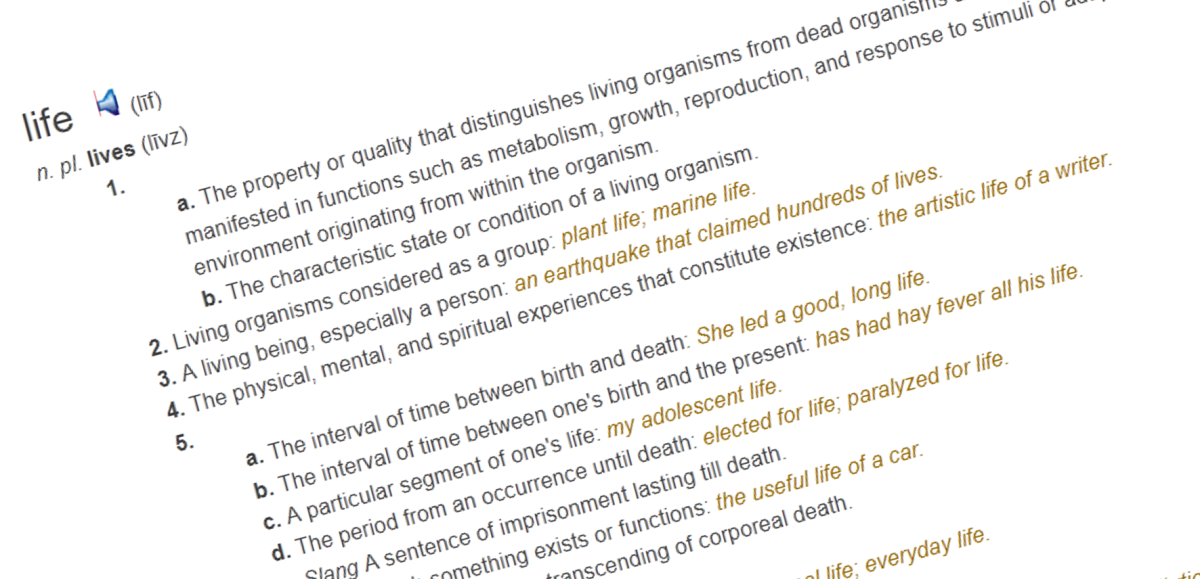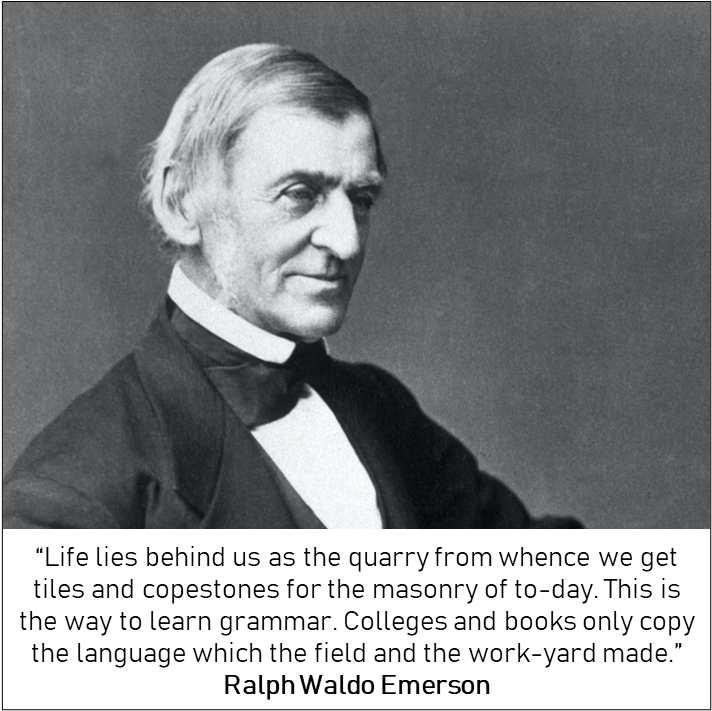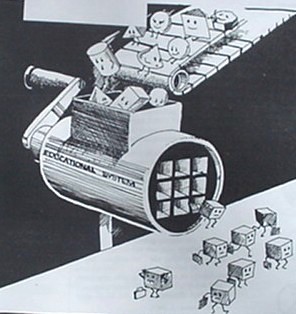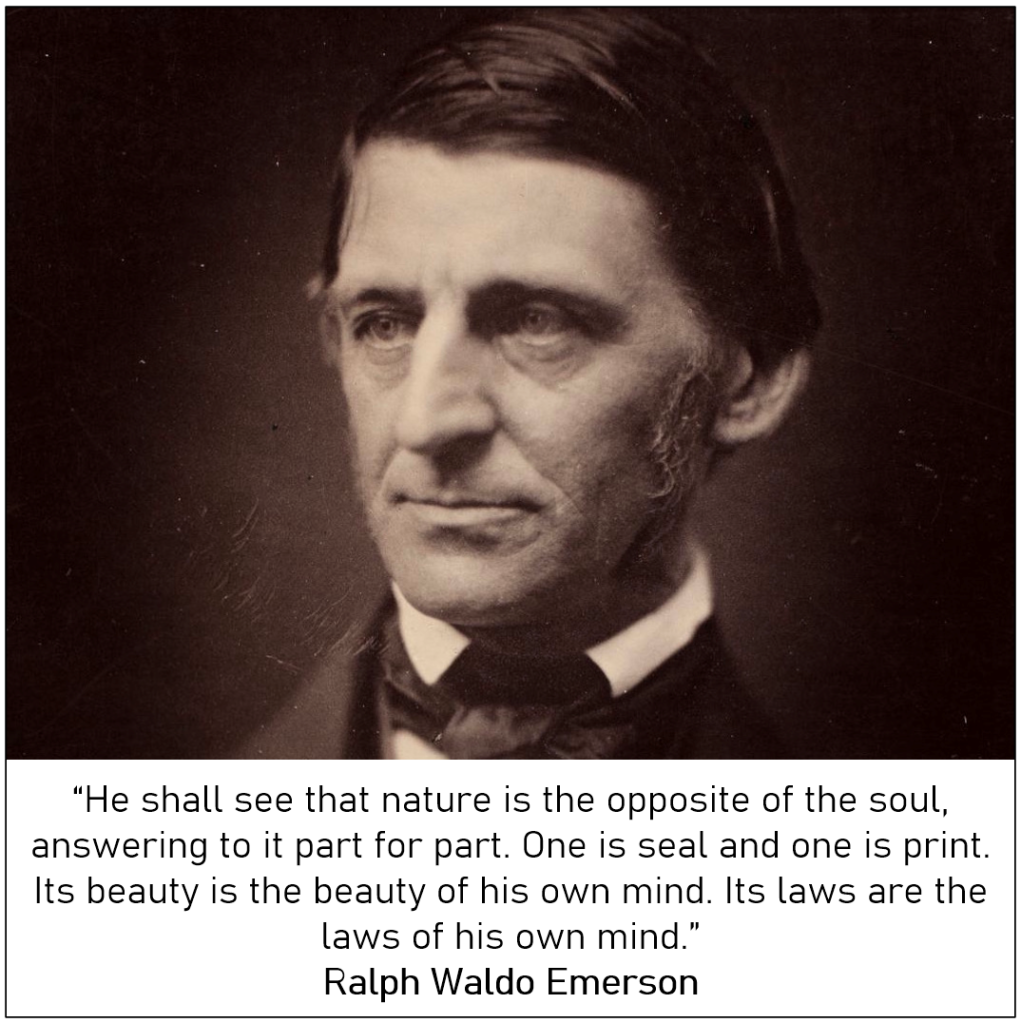Part-3 Ralph Waldo Emerson’s Ideas of a True Scholar for the Modern World
Ralph Waldo Emerson’s famous speech called “The American Scholar” was delivered in 1837 in front of the American youth. Emerson wanted the youth of that time to understand what it takes to create new knowledge and breakthroughs. The origin and legacy of knowledge, importance of past knowledge through books, importance of bringing and testing ideas into the reality to find the absolute truth, the greatness and vastness of we as a human-beings and the life we live are some important aspects of Emerson’s speech. His sheer vocabulary rather choice of words is more than enough create an impression which will last for thousands of years. Emerson’s ideas in this speech are based on very fundamental ideas of knowledge, biases in human thought processes, loopholes in human psychology which are still relevant with 21st century.
There are Part 1 and Part 2 which have dived deeper into these important parts of The American Scholar.
We will see in this Part 3 what were the closing thoughts and advice, instructions Ralph Waldo Emerson gave in his The American Scholar speech. The closing parts of this speech covered the idea of Man as a University. It is the beauty of Emerson’s thoughts which attributed the vast sources of infinite knowledge to each every person’s life. This not only gave importance to every person as a human being whose soul, mind themselves are the nature but this also brought a sense of responsibility as an original and objective thinker in every person of the nation. The speech truly transcended the eras and generations. The revolution in the field of knowledge by considering Man as a University itself is one of the core idea of Ralph Waldo Emerson’s thoughts in his speech The American Scholar.
Objectivity – The Job of A True Scholar
“The office of the scholar is to cheer, to raise, and to guide men by showing them facts amidst appearances”
The American Scholar, Ralph Waldo Emerson
Emerson has simplified the jobs of a true scholar in the last sections of his speech. The only job of a true scholar is to guide the humanity through his observations. Emerson pointed out that during the process of becoming overly attached to their own vocation, people have forgotten, have lost the awareness and greatness of the nature thereby their own souls. A scholar’s job is to observe the nature, put those observations before the humanity and inspire people to continue this pursuit for the absolute truth.
Emerson has attributed this task as “the highest functions of human nature”. But, this task, this journey has its challenges, it demands some sacrifices. One of them is the influence of popular opinion and the expectation of materialistic benefits. For explaining this Emerson gives example of John Flamsteed and William Herschel who incessantly observed the sky for star cataloguing. Their observations proved important for the discovery of planet Uranus. While observing the goal was not to become famous and get rewards and recognition for the discovery; rather the job they were doing was one of the most boring and mundane tasks of humanity. Flamsteed and Herschel were observing the sky and noting down their observations with only goal of understanding what is happening in the universe where they exist. The times of Herschel were the times of debates on the center of the universe. Popular opinion was that the Earth was the center of the universe (Geocentric Model of Universe); another popular opinion was that the sun was at center of the universe with earth revolving around it (Heliocentric Model of Universe). Today we know that we are not even at the center of our own galaxy milky way and it is near to impossible to ever find the center of the universe! The jobs of Flamsteed and Herschel if would have been influenced by the popular opinions surely, they would have received those accolades, prizes, fame from either of the groups promoting their own versions of truth. Instead of having that influence of opinions/ having those biases, they honestly presented themselves to the task of objectively observing the universe. And these objective observations took humanity to completely new understanding of the universe that even they wouldn’t have thought about. (See P.S. for more)
The point is that that most of the times a true scholar will be heavily influenced by biases, popular opinions, expectation of “immediate fame”, money, company of famous and influential people, hero worship; but he has to move away from these pleasures and only commit himself to this highest function which is to objectively observe and interpret the nature. Sometimes poverty and solitude will be his only companions.
The American Scholar, Ralph Waldo Emerson
“…He is to find consolation in exercising the highest functions of human nature. He is one who raises himself from private considerations and breathes and lives on public and illustrious thoughts. He is the world’s eye. He is the world’s heart.”
There is one episode (S01E09) in Rick and Morty where Rick’s Dad is getting honored by the high class aliens of Pluto to name Pluto as a Planet so that they can continue their self benefiting activities thereby degrading the Pluto. For the good of Science Rick’s Dad comes out of the bias and the false praise, prizes, popularity from high class and renounces Pluto as a Planet.
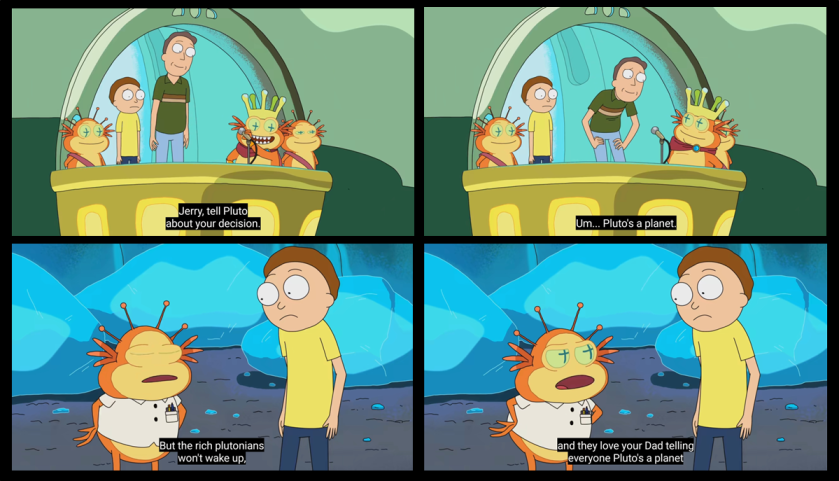
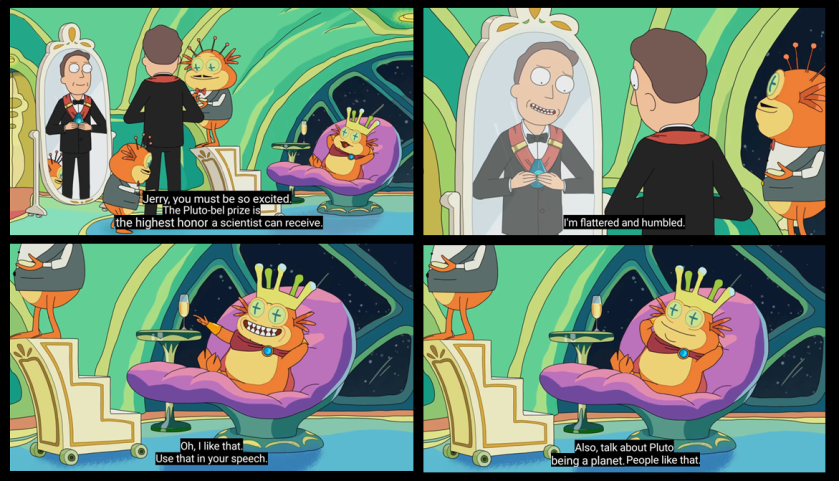
Emerson beautifully told what has to be done but he also told how it is possible.
Confidence and Bravery of Self Expression
For understanding the things ahead, one must not forget that Emerson established an observation that our soul is the impression, the reflection of nature around us. The limitations, boundaries of our soul are the limits of the nature around us – our understanding of it. (Emerson already established that “Know Thyself” and “Study Nature” mean nothing but the same- See in Part 1)
Emerson talks about confidence of a scholar in his job, in himself. When a person will truly engross himself in his own objective studies free from all the influences, then only he will discover that absolute knowledge. Emerson attributed all such influences as mere appearance and tells everyone to look underneath them. When a true scholar will approach this job of observation and study of himself with confidence the nature will reveal itself. When this scholar will discover this truth about himself, he will literally find the truth of all for all nature resides in him.
The American Scholar, Ralph Waldo Emerson
“He then learns that in going down into the secrets of his own mind he has descended into the secrets of all minds. He learns that he who has mastered any law in his private thoughts is master to that extent of all men whose language he speaks, and of all into whose language his own can be translated.”
Emerson again highlights that the journey of understanding the universe, the nature is not outwards rather it is inwards. One only has to be confident and honest about his intentions. After conquering this self-doubt, a true scholar will have to dare to present his objective observations to the biased crowd.
The following lines by Emerson are uncountably powerful and very motivational for every person (not only artists) of every generation who has embarked on such journeys in their lives.
The American Scholar, Ralph Waldo Emerson
“The poet, in utter solitude remembering his spontaneous thoughts and recording them, is found to have recorded that which men in cities vast find true for them also. The orator distrusts at first the fitness of his frank confessions, his want of knowledge of the persons he addresses, until he finds that he is the complement of his hearers; – that they drink his words because he fulfills for them their own nature; the deeper he dives into his privatest, secretest presentiment, to his wonder he finds this is the most acceptable, most public and universally true. The people delight in it; the better part of every man feels—This is my music; this is myself.”
Emerson informs that the scholar is not inherently protected like women and children. Once he gathers this bravery to challenge the conventions, the people who were resisting him at first will also accept his ideas, the falsehoods they were carrying as their truths will shed down as his ideas are originated from the pure and absolute knowledge; people will find the connect to his communications from his ideas of his soul thereby ultimately the great nature itself.
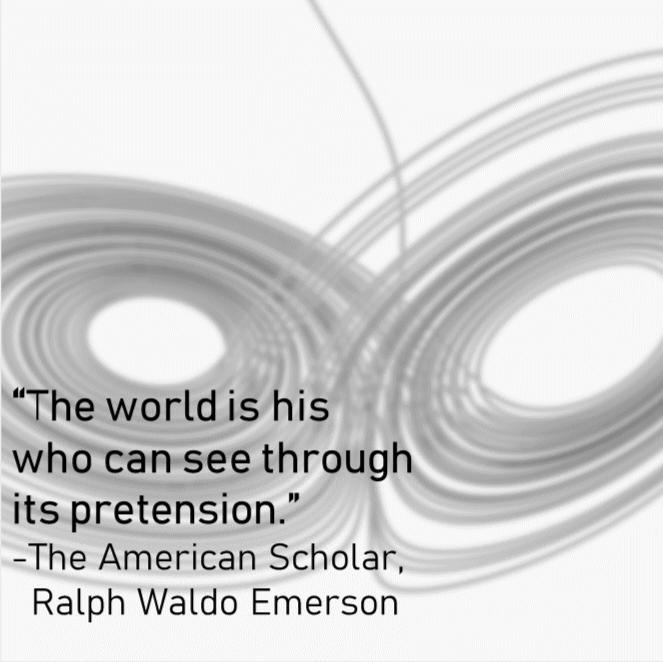
Fluidity of thoughts
Even though we are unable to understand the whole picture of nature in single glance that should not stop us from updating that picture. Emerson understood that the knowledge which humanity has gained till date is not complete, there will be always something missing hence it cannot be trusted completely but that also should not restrict us from challenging hat has been established already. Emerson is expecting fluidity of thoughts, ideas here as is the nature.
The American Scholar, Ralph Waldo Emerson
“Not he is great who can alter matter, but he who can alter my state of mind.”
In the momentum of figuring out our individual lives, everyone has intentionally ignored this imperfection of knowledge and has forgotten to challenge the conventions. There is no one to blame for this ignorance but a true scholar’s great job becomes important in this situation.
Emerson has also established his worry for conversion of humanity into a herd, a group of blind followers, blind worshipers. In order to simplify our lives, we have chosen to follow the paths created by our ancestors instead of challenging them to refine the knowledge further. This simplification of life is closely related to the search for money and power for they are the most influential means to ease the lives. Emerson here suggests for the revolution through “the Culture”.
The American Scholar, Ralph Waldo Emerson
“The main enterprise of the world for splendor, for extent, is the up-building of a man.”
Through culture Emerson actually expected the richness of individual lives. The lives where materialistic means lie to the bottom and the search for knowledge, up-gradation of knowledge, philosophical up-gradation of humanity is at the top. Humanity should not limit its limitless mind, soul to some materialistic thing or a person to worship – history has many examples that we have already done that many times.
The American Scholar, Ralph Waldo Emerson
“The human mind cannot be enshrined in a person who shall set a barrier on any one side to this unbounded, unboundable empire.”
Age of Revolution – Inner Development, Relevance of Knowledge and Man as a University
Emerson is expecting amalgamation of all types of ideas in the current age through the scholars. For that he gives references of the different ages in history like early Classical Greek Era known for developing foundations of knowledge, Romantic ages and Philosophical ages. Here he establishes that even though these ages are independent of each other ad existed in different timelines; according to Emerson they are always getting reflected in different phases of every person. All these eras actually exist in every person. Thus, Emerson wants to bring all the streams of knowledge, all the poles/ the extremes of different streams of knowledge in front of each other.
The aim of bringing everything and everything contradicting on a common table is to create relevance of knowledge for humanity. Through this, the knowledge will serve at its highest capacity for the betterment of humanity. Emerson wants to bring all so called “Hi-Fi” knowledge stream to a simple test of “relevance” because if it is not relevant then what purpose can knowledge serve for the people, for the humanity?
The American Scholar, Ralph Waldo Emerson
“Give me insight into to-day, and you may have the antique and future worlds.”
These ideas were revolutionary for the times when the pursuit of knowledge was limited to high class people and not to the people working for the soil.
Emerson closes his speech with one important thought of development from inside. He expects every person to play a part in the development of humanity as a whole. All the ideas presented by Emerson represent decentralization of power and involvement of people from grass-root level; it is the only reason for which every life gets uniqueness and importance. Emerson’s important idea of a man as a society and a society as a man gets concluded in the closing sentences of his speech. Emerson expects every person to contribute to the new revolution of the society by starting the inner journey. Patience is the final virtue which he instructs everyone to have to start this journey.
The American Scholar, Ralph Waldo Emerson
“The world is nothing, the man is all”
One has to understand how all the ideas given by Emerson are still relevant today. The ideas to highlight are confidence in self, search for real freedom, bravery to present and interpret the objective observations against the conventions, remaining free from popular and materialistic influences, fluidity of thoughts, importance of inner development, creating knowledge of relevance, and patience.
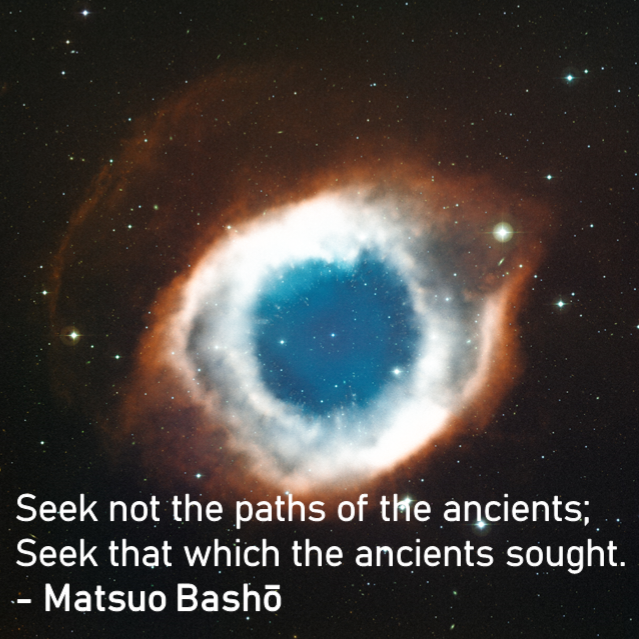
-The End-
(P.S. – The observations made by William Herschel were majorly intended for mapping the Universe so that its center can be located. Later on, the objective observations led to discovery of Universe. After a century the observations became important when scientists found an irregularity in the orbit of Uranus around the Sun. This irregularity of meant that either Newton’s Law of Gravitation is wrong or there is one more planet whose mass is affecting the orbit of Uranus. After additional observations, a new planet ‘Neptune’ was discovered by scientists thereby proving the indirect and valuable legacy of knowledge created by Herschel and Flamsteed.)
Read Part 1 Ralph Waldo Emerson’s Ideas of a True Scholar for the Modern World from here.
Read Part 2 Ralph Waldo Emerson’s Ideas of a True Scholar for the Modern World from here.
Read Part 3 Ralph Waldo Emerson’s Ideas of a True Scholar for the Modern World from here.


